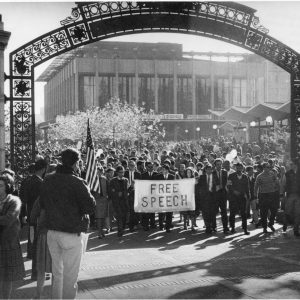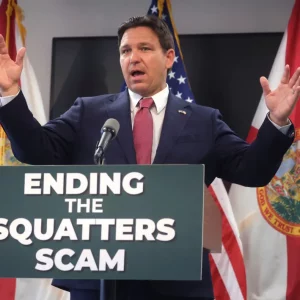
Berkeley’s campus atmosphere is ripe with tension from protests. Numerous campus events have been interrupted by the likes of By Any Means Necessary (BAMN) and Black Lives Matter (BLM) activists who seek to convey their platforms through upheaval and disruption. While their message is certainly conveyed, it comes at the cost of an educational dialogue, forcing one platform onto the audience whilst forgoing another. Is it more effective to wage this culture war, or is peaceful dialogue more likely to win supporters?
In the past year, numerous events hosted by the Berkeley Forum have had a significant protest to counter the event, with some events being ended prematurely due to said protests. When Chancellor Nicholas Dirks attempted a dialogue regarding higher education with the student body in May, he was drowned out with protest. When investor and entrepreneur Peter Thiel attempted a conversation on subjects entirely nonpolitical last December, he was forced off the stage. These events were met by significant upheaval from the audience. As reported by the Daily Cal, students characterized the disruptions as “inappropriate” leaving them “very angry” and “disappointed”. It is hard to quantify the effectiveness of such tactics, particularly given the lack of polling of student’s political opinions. Nevertheless, the frustration of those sincerely interested in a dialogue is palpable.
The motivation behind such protests comes from a “us vs. them” mentality where anything short of radical upheaval is insufficient. The protestors often believe the dialogues are not representative of their positions and are therefore an unfair (and not worthwhile) exchange. For example, BLM activist Marissa Johnson justified interrupting a speech by Bernie Sanders last August by explaining that “the unrespecitability (sic)… was very intentional… so that people are having these conversations”. When asked about the potential damage she was causing to her movement, she refused to consider it, attributing the question to “white gaze”. Somewhat paradoxically, the fear and mistrust allegedly fostered by white liberals justified actions which potentially sowed further fear and distrust.

One might justify the actions of BLM protestors at Mr. Sanders’ speech by highlighting Sanders’ change in platform to cater more towards the protestors. Comparably, though victories won by BAMN are few and far between, one may argue that simply making radical demands brings much needed attention to their cause. This begs the question; what constitutes effectiveness?
Undoubtedly, forcing a candidate to change his platform can be interpreted as effective. However, it is questionable whether the gains negate the losses. As previously mentioned, these protests have left many upset and discontent, fermenting a sense of otherness between the protestors and the audience. By drawing upon and fostering the divide between groups, protesters forgo the benefits of social cohesiveness. Individuals once sympathetic to a cause may lose those sentiments under duress. Moreover, a dangerous precedent is set when a protest is justified due to a perceived lack of representation in a dialogue. Would these same protesters tolerate Neo-Nazis disrupting a BLM rally so that they may preach their doctrines to an audience who isn’t listening? At what point, if any, is a protester entitled to disrupt a dialogue? How underrepresented or oppressed must they be?
All of the aforementioned points are of course moot. The entire point of a dialogue is to provide an equitable and balanced environment for discourse. If such equitability is not satisfactorily provided, then those in disagreement may themselves create a forum of discussion. At no point must one’s right to free speech or privilege to education be jeopardized by an individual or group which self-elects to end a dialogue they arbitrarily see as unfair.
Some of these protests are effective by a Machiavellian metric. Whilst BAMN has seen little if any substantiated results, the BLM movement has successfully swayed public opinion and changed political platforms. However, the effectiveness in a vacuum overlooks dangerous precedents. By acting unilaterally, these protesters dismiss critique and discussion, opting instead to nominate themselves as censors. All those who wish to enact change must and shall be heard. None, however, should do so at the expense of hearing others.





Be First to Comment